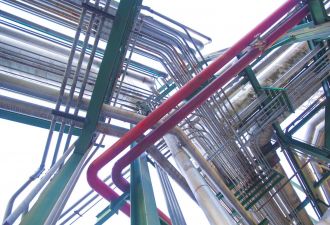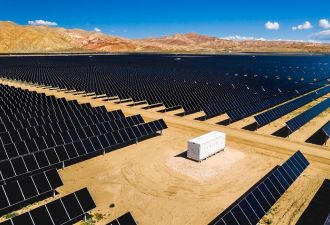There are essentially two approaches one can take to government stimulus programs.
One, you can refuse to participate in these programs on the grounds that subsidies distort the market and lead ultimately to economic inefficiency.
Two, you can take the money with the realization that it pushes you into a murky realm where free market fundamentals, regulation and social policy intermingle.
But there's certainly one thing you can't do. You can't ask and/or obtain stimulus funds AND complain that these programs are futile, expensive and doomed.
Unfortunately, that doesn't stop people from trying. T.J. Rodgers, the CEO of Cypress Semiconductor, helped revive the solar industry in the U.S. by investing in SunPower. He was also an early investor in Bloom Energy, a fuel cell developer. Both companies rely heavily on subsides.
Nonetheless, Rodgers -- a committed libertarian -- regularly complains about government regulation, R&D funding and subsides. He wore tri-cornered hats to public rallies years before it became a fashion statement.
He gets away with it because 1) he's actually a lot of fun and 2) he recognizes how subsidies can play a role in jumpstarting an industry.
Others are not so jolly. Mark Mills, a founding partner of Digital Power Capital and a former adviser to Reagan, is the latest example.
Last week in Forbes, Mills penned an article titled "Clean Energy Driven Job Growth is a Return to the Stone Age" that argues that green jobs largely represent a step backward in America's economic development. The problem is that these jobs are centered around construction, not breakthrough industries such as manufacturing in the 1920s or computing in the 1980s, Mills argues.
A significant part of his ire is directed at Brightsource Energy, which is building a 370-megawatt solar thermal plant in the Mojave in part through federal loans.
"Why in the world would anyone want the energy sector, in whatever form it might take, to be the engine of American employment recovery? Sure, at one time in history (and today in subsistence cultures) nearly 100% of employment was anchored in fuel jobs: food for humans and their animals, and fuel for heat and cooking. That, thankfully, isn't the case anymore," he wrote. "There are few seers who can see the next epicenter. I doubt it's in the Mojave Desert."
Fair enough, but here's the quandary: Mills' firm invested in a company called Infinia that wants to build solar power plants. In fact, Infinia has received over $12 million in grants from the Department of Energy. Senator Maria Cantwell visited in late 2008 to extol how federal tax credits allowed the company to expand manufacturing space and create green manufacturing jobs.
There are differences between Brightsource and Infinia. Brightsource's underlying technology shows more commercial promise according to some analysts, which partly explains why it has obtained more money from investors and the government.
Infinia also isn't one of those wacky outfits trying to build an epicenter in California's Mojave. It wants to erect plants in Arizona.
But Mills doesn't stop there. Another one of his companies is International Battery, which hopes to make large-format lithium ion batteries to help balance the output from solar and wind farms.
"We weren't the only ones having the thought that the government was interested in filling the funding gap -- it may be that they'll still do it," said chairman Mark Mills in 2009. "The DOE has to address whether or not they are concerned that emerging technologies will mature. [...] We hope that the DOE decides that there may be follow-on to help entrepreneurs."
In the Forbes piece, Mills wrote, "But for matters of national policy and understanding where America is and must go for economic growth and employment? Please, don't put us back on the (wind, or solar) farm."
Like Rodgers, Mills is actually an intriguing character in person. He once explained to me how advances in computing have been a boon to energy efficiency. If Google had to make do with vacuum tube computers, a single data center would soak up as much power as Manhattan, he told me. He is also putting money into ventures that could one day become self-sustaining, game-changing names in biofuels and green electronics.
But if you're going to ask for taxpayer handouts, we'd all appreciate a little more gratitude.



